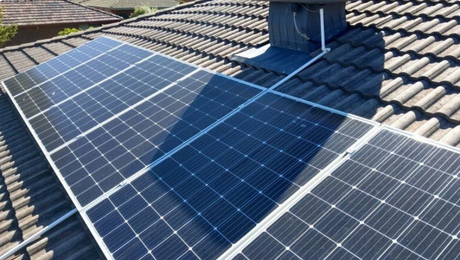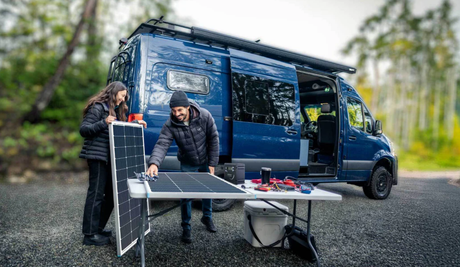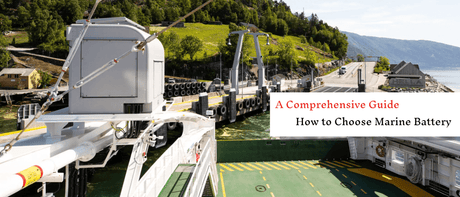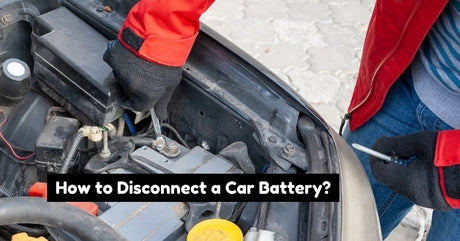Life on the go can be pretty rough without power. But it doesn’t have to feel like you are at the world’s worst bootcamp for surviving the post-apocalyptic world.
With the right equipment, you can power up (pun unintended) your RV to the next level and enjoy the amenities a modern household has (and more).
All you have to do is hook up some RV solar panels to your RV or trailer and you can enjoy life on the go even in the most remote locations.

No more worrying about your next shore power top-up or the hassles of dealing with a gas generator.
If you have not heard about RV solar panels, don’t worry. This article will answer all your questions, including:
- What are RV solar panels?
- Types of RV solar panels
- How many RV solar panels do you need?
- How to install RV or trailer solar panels?
- Are RV solar panels worth it?
- What's the best Solar Panel System For RV?
Let’s dive in.
What are RV Solar Panels?
RV solar panels are solar panels suitable for use on RVs, mobile trailers, campers, and other similar accommodations. They are great to use when you need solar panels that can make the best use of compact spaces.
For more information on solar panels, you can look at How To Make A Solar Panel In Canada and How Solar Panels Work.
But what’s the difference between RV solar panels and commercial or residential solar panels? Not much. RV solar panels produce a more modest wattage than their counterparts. Also, they are smaller and easier to work with on RVs, campervans, motorhomes, or trailers.
Some people even use solar panels for other purposes rather than on RVs because of the benefits they provide. These benefits include:
● Affordability
● Ease of Installation
● Space Utilization
● Portability
And these are only some of the benefits you enjoy from RV solar panels.

As we previously mentioned, RV solar panels are great for compact spaces. Here are the RV solar panels features that make us say so:
● Small Size: Their small size helps you install more panels onto your RV rooftop.
● Portable: Some RV solar panels can be set out in the sun while your RV rests in the shade.
● Lightweight: RV solar panels are easier to maneuver, carry and install on your RV’s rooftop.
● Voltage Compatibility (12V): RV solar panels usually have a DC voltage output that’s compatible with other DC electronics on your RV. As a result, your solar panels can help power up some of your RV’s electronics.
If you are confused with all the naming, just know that an RV solar panel, trailer solar panel, and solar panel for motorhomes or campervans are the same thing.
Types of RV Solar Panels
There are three main types of RV solar panels:
1. Monocrystalline Solar Panels: This type of solar panel is smaller and most efficient when converting solar energy into electricity. Monocrystalline panels are the most suitable panels for RVs due to their reduced size and weight. They also provide more wattage per panel than their counterparts.
2. Polycrystalline Solar Panels: These panels are bigger and slightly less efficient than monocrystalline panels. That being said, they are still a reliable panel type that’s more affordable than their counterparts.
3. Amorphous Solar Panels: These panels are flexible, bendable and thin and great for installation on irregular surfaces or roofs. Another advantage of their construction is that they are lighter and affordable than their counterparts. The trade-off however is that they are less efficient than both monocrystalline and polycrystalline panels. As a result, they take up a much larger space to produce an equal wattage produced by a much smaller monocrystalline panel.
Besides their technical makeup, RV or trailer solar panels can also be divided into two categories based on how they are used:

1. Fixed Installation Panels: These are your regular type of panels found in most residential or commercial solar panels. They need to be mounted either on the roof of your RV or on another immovable surface. Their advantage is that they keep working whether you are driving or parked. The disadvantage is that you have to park in direct sunlight, so the insides of your RV can get toasty.
2. Movable Panels: This panel type comes in many forms, from suitcase panelsto foldable panels. Their benefit is that to enjoy solar power you don't have to park your RV or trailer in direct sunlight. Instead, you can park your RV in the shade and set up your movable panels in the sun while you enjoy the cool shade. The drawback is that their wattage is often limited due to the need for increased portability. Another drawback is that you can’t use them when you are driving. Explore the benefits of folding solar panels here.
How many RV solar panels do you need?
To find out how many solar panels you need for your RV, here’s what you need to do:
● Step 1: List out all the devices you need to use in your RV
● Step 2: Find the wattage of each device on your list.
● Step 3: Estimate how long you will use each device in hours. For example, if you will use the blender for 20 minutes, then list that time as 0.33 hours (20 / 60 mins).
● Step 4: Multiply each device's rated wattage (usually listed at the back or bottom of your device in Watts) by its running time (in hours) to find the amount of power it uses each day. For example, if the blender's wattage is 500W and it runs for 20 mins or 0.33 hours, it will use 165Wh each day.
● Step 5: Sum up all your devices’ power or energy usage for each day to find the total power you use each day.
● Step 6: Take the previous sum in Step 5and divide it by the product of your chosen solar panel's wattage and number of peak sun hours where you live (Number of Panels = Total Energy Usage / (Panel’s Wattage * Peak Sun Hours)).
● Step 7: That's it! The answer you get, rounded to the next nearest whole number, is how many panels you need for your RV.
You can try out different panel wattages to find the RV solar panel that offers you the perfect blend of size, wattage, and price.
If you need an alternative solution to finding how many solar panels you need for your RV, campervan, or motorhome, try using our online solar calculator with an option specifically for RVs.

RV Solar Panel Installation
Once you have chosen your RV solar panels, it's time to roll up your sleeves for the installation.
Installing RV solar panels is not difficult and you can easily do it without calling a professional installer. But if you are not as spry or skilled as you used to be, we highly recommend you seek outside help as no amount of money is worth risking your health.
Here’s how to install and use different types of solar panels:
● To install rigidmonocrystalline or polycrystalline panels on your RV’s roof, you can use brackets that will secure the panels to your roof. Typically, most RV solar panels will come with instructions and tools (bolts, mounts, brackets, adhesive, etc.) you need to install the panel on your roof. Once the panels are mounted on the roof, run a line or wires (positive and negative) from the panels to your inverter according to the instructions that came with your panels.
● To install flexible solar panels, use the sticky backside of the panels with adhesive or silicone to stick the solar panels on your RV rooftop or other convenient surface. Once done, run the line from the solar panels to your inverter, taking care to follow any instructions and precautions in your booklet or pamphlet.
● Installing and using movable solar panels is easy. All you have to do is set out your solar panels in the sun at an appropriate angle. Run a wire from the panels to your inverter or solar generator. And follow all the instructions and precautions that came with the panels. Movable panels are typically foldable like a briefcase. Sometimes, they come with a stand that helps you prop up the panels at an appropriate angle.

Are RV solar panels worth it?
RV solar panels are a worthwhile investment for the right kind of people.
But who are the ‘right kind of people’?
RV solar panels are worth it for you if you fit into one or more of the following descriptions:
● You often stay in your RV, campervan, trailer, or motorhome.
● You like to camp in remote places away from crowded campsites (boondocking).
● You may not have easy access to shore power hookups provided by campsites and other sources.
● You want to replace your gas generator with a cleaner and quieter source of power.
● Find more descriptions in Should I add solar panels to my RV.
If the above descriptions apply to you, we recommend you do yourself a favor and check out our range of solar panels, inverters, and solar generators for RVs.
As with all things, not everyone will find RV solar panels worth the investment. For instance, if you always hook up your RV to shore power or you only use your RV once or twice a year, you might find RV solar panels are an unnecessary expense for you.
That being said, some people in the same situation buy RV solar panels simply for the peace of mind of having a backup power supply for emergencies and when you are traveling. If that's the case, you can spoil yourself with smaller, less powerful, and more affordable RV solar kits.
Best Solar Panel System For RV
If this article did its job right, you can’t wait to enjoy life off the grid after hooking up your RV with the best RV solar panels you can find.
But what’s the best solar panel system for RV?

This might be expected, but look no further than the 300W smart energy storage kit that has everything needed to level up your trusty RV to a solar powered RV. The solar kit includes:
● 3 * 100W monocrystalline flexible solar panels.
● 1 * 50A MPPT battery charger
● 2 * 100Ah 12V smart LiFePO4 battery with a total energy storage of 2400Wh
● 1 * 2000W 12V Pure Sine Wave Inverter
● 1 * 60A ANL Fuse Set w/ Fuse
We recommend this RV solar kit because it’s expandable (up to 660W of PV input), super light, and provides the best value for your money.
We also highly recommend you check out all of Renogy’s RV solar kits. We are sure that we have the perfect solution waiting for you.
Our solar equipment is carefully designed and matched so that it’s ideal for use in RVs, trailers, and other mobile homes. But just don't listen to us, check out what tons of other
satisfied customers had to say about our products.


When you buy a Renogy product, you are not just buying a product, you are buying the peace of mind of having a guaranteed quality product that will stand the test of time. Check out more products on Renogy store.
Related articles:
Guide To Choosing Off-Grid Solar System Packages With Batteries For Your RV
Typical RV Wiring Diagram Explained: Any Better Solution Available?
Exploring The Advent Of Solar Panels In Ontario









